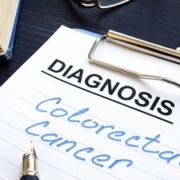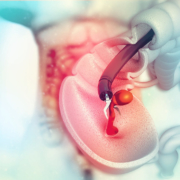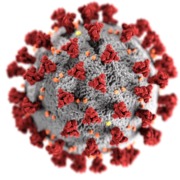Impact of Social Media on Colon Cancer Screenings
Social media is a powerful tool that can be used to spread important information at unprecedented speed. Many users of TikTok, the short-form video app that has taken the world by storm, have utilized the platform to share their experiences with colonoscopy screenings. Users upload “vlogs” (video blogs) to the platform that document their entire experience in detail and talk to their audience throughout the process. While this may seem like oversharing, the authentic nature of these vlogs has grown popular on TikTok, as videos that do well on the platform often contain genuine and unfiltered content.
One example of this is @lucindabinney‘s three-part video series:
@lucindabinney Colonoscopy Vloggy Part 1 🧻🧻🧻 #colonoscopy #gutissues
@lucindabinney Colonoscopy Prep Part 2 🧻🧻🧻 #colonoscopy #gutissues
@lucindabinney Colonoscopy Part 3 🧻🧻🚽🚽 #colonoscopy #guthealth #gutissues
Lucinda Binney walks her audience through her experience with colonoscopy prep in a humorous, unfiltered manner that is popular among many lifestyle influencers. She details her experience with a liquid diet (she includes jello) and the standard practice of taking laxatives to prepare her colon for screening. Through this three-part vlog, she demystifies this screening procedure for her 340,000 followers, coming clean about both her anxiety surrounding the experience and her surprise that the laxative drink didn’t taste as bad as she thought.
While it is uncommon for people in their 20s to receive colonoscopies, as the U.S. Preventive Services Task Force does not recommend them until age 45 (a recent change from the previous age 50 guideline), individuals at high risk for colorectal cancer (CRC) may benefit from receiving a screening. CRC rates in the younger population have risen dramatically in the past two decades, with incidence jumping from 2.7 people per 100,000 in the year 2000 to 5.0 per 100,000 in 2019 in the 15-to-39 age group. While these incidence rates are still not high enough to warrant routine screenings in the general young adult population, they help make the case for increased screenings among those at higher-risk.
Haddon Pantel, MD, of Yale Medicine recommends that people in their 20s and 30s seek CRC screening if they experience any sudden changes in bowel movements, rectal bleeding, or any weight loss, abdominal pain, or appetite changes that are not otherwise explained. For more information about the signs of CRC, check out this resource.
Emma Edwards is a Colon Cancer Prevention Intern with the Colon Cancer Foundation.










Leave a Reply
Want to join the discussion?Feel free to contribute!